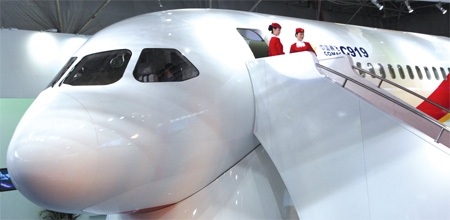Junk it on TV shows and movies
Updated: 2010-02-25 07:06
By Op Rana (China Daily)
For years, we have known companies pay to have their products displayed in TV programs and films. There may be nothing wrong with that in today's world of cut-throat business and profit. But do such product placements influence children's food preferences?
That's exactly what Dr Lisa A. Sutherland, of Dartmouth Medical School in New Hampshire, is on a mission to find out. The lead researcher of the first study into the prevalence of food and beverage brand placements in popular films said recently: "We may not even think of (product placement) as advertising." But advertisers have long paid for their products to be used in TV programs and movies.
What is worrying, according to Sutherland, is that a majority of the recent top-grossing films feature food and beverage product placements, with junk food and fast-food restaurants grabbing most of the starring roles. The trend has been seen in a majority of PG and PG-13 films, which often target children and teenagers, and in one-third G-rated movies.
She has advised parents to be aware that movies, too, can be a source of junk food advertising. The power of food product placement became clear, the researchers have said, after the 1980s blockbuster E.T. boosted sales of Reese's Pieces by 65 percent in the few months after its release.
The researchers' team studied the top 20 box-office movies for every year between 1996 and 2005, and found that 69 percent of the 200 films included at least one brand placement for a food product, beverage or food retailer. The most heavily featured items included candy and other sweets, salty snacks such as chips and pretzels, and soft drinks. And when it comes to featuring restaurants, fast-food establishments steal the show with 62 percent.
But that's exactly what is expected of today's world. First, companies entice children to the "lip-smacking", "finger-licking" world of junk food. Second, they retain them as customers (possibly throughout their life) with more "gourmandizing" offers. Third, they afflict them with obesity and other junk-food related diseases. Finally, they invite them to fitness and cosmetic surgery centers, or hospitals and pharmacies. And at every step they make more money.
Sutherland, whose team's findings were published in the journal Pediatrics, said the message for parents is that junk-food advertising "goes beyond TV", the medium that is usually blamed for promoting nutritionally dubious foods among kids (as well as grown ups). "If you're concerned about these ads," she said, "you should be aware that popping in a bunch of movies may not be any better than letting your kids watch TV."
The question is: Can parents today stop their kids from watching TV? Or can they stop them from going to the movies?
Governments across the world have made it mandatory for cigarette companies to print health warnings on their packets. Food companies have been compelled to print the break-up of nutritional (especially cholesterol) content of their products on their packages, and whether they contain unsaturated fats. Films and TV programs in which actors (rather their doubles) perform dangerous stunts warn viewers, especially children, not to try them at home. To avoid unnecessary controversies producers and directors also declare that the characters in their productions are fictitious and do not resemble any individual, living or dead.
If film and TV program producers and directors can make declarations to save themselves from trouble, cannot they tell viewers that certain products displayed in their productions can be harmful for children? After all, if the producers and directors help children to grow up into healthy adults, they will only serve their long-term purpose of increasing their viewers' numbers constantly.
E-mail: oprana@hotmail.com
(China Daily 02/25/2010 page9)
Paper's Digest

Chinese jet takes on Big 2
First large commercial plane set to ride on demand for aircraft as economy grows.
Super-CPU only for domestic eyes
Specials

Chinese jet takes on Big 2
First large commercial plane set to ride on demand for aircraft as economy grows.

Gaining ground
Doing business in china for westerners has come a long way, Peter batey says.

Safeguarding environment a priority
China continues to face mounting pressure to curb environmental degradation, despite progress in reducing pollution over the last five years, the environmental protection minister warned.
